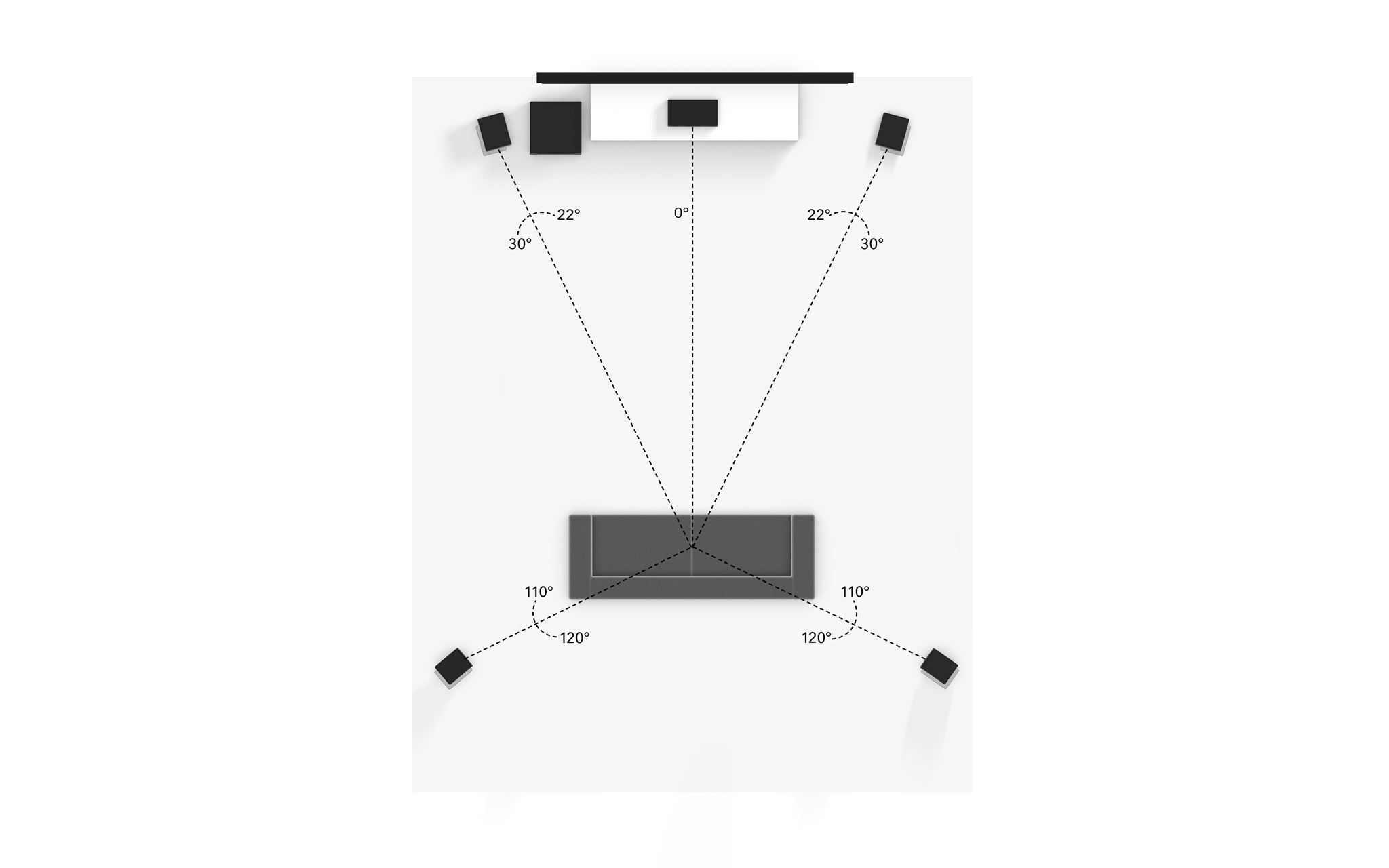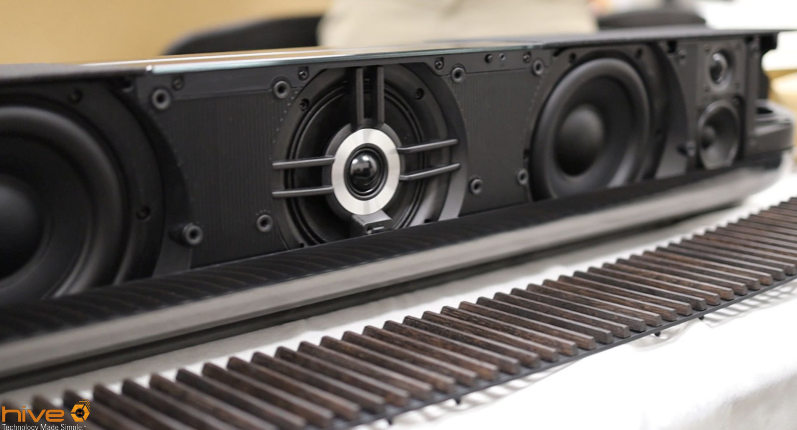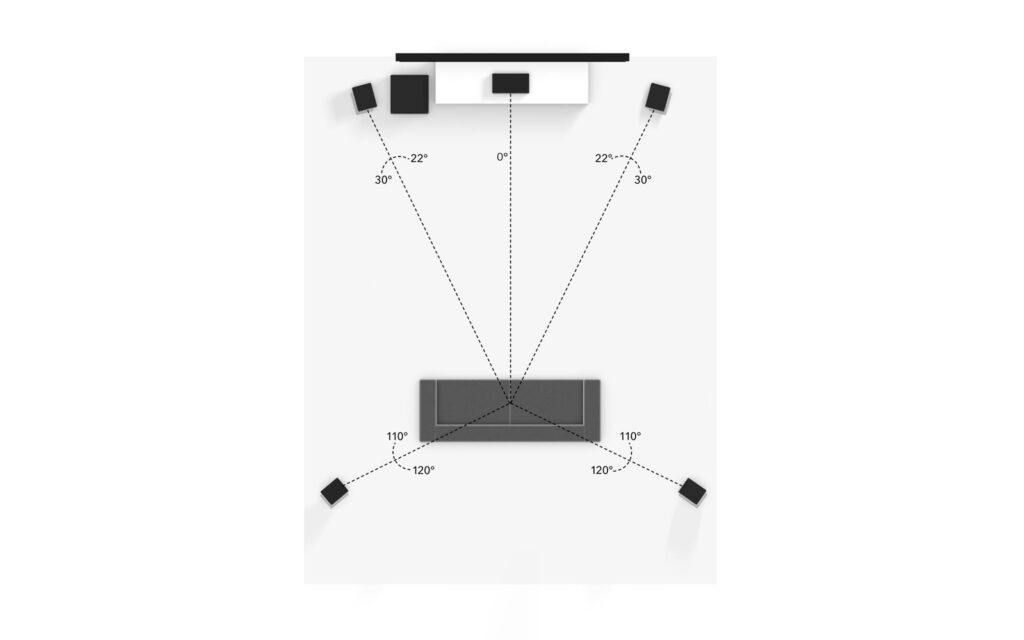


Your TV's picture is great, but the sound quality? Much less so. You have to turn the volume way up to hear anything, and even then, you have to use subtitles on shows to understand what anyone is saying. Speakers or a soundbar can solve that problem and even enhance your listening experience.
Both options produce sound, but are they really all that different? Is a soundbar or a set of speakers best for you?
By the end of this article, you'll understand the similarities and differences between the two and the pros and cons of each, so you can confidently pick the perfect equipment.
Hive specializes in home automation, including audio equipment like soundbars and speakers. But regardless of whether you’re near us in Tampa Bay or not, this blog applies to anyone wanting to get more out of their TV-watching experience.
But before we can compare the two, we have to understand what soundbars and speakers are.
Soundbars sit underneath your TV and have multiple speakers. Many have three – one left, one right, and one center – but others, like soundbars equipped with Dolby Atmos technology, have more. This formation gives you better sound because rather than the speakers being on the back or bottom vent of the TV, they face the viewer to project sound into the room.
They can be split into two groups – active soundbars and passive soundbars. Active soundbars have a built-in amplifier so you don’t need a separate amplifier or receiver to power it.
Passive soundbars, on the other hand, don't have a built-in amp or receiver, so you have the added cost of buying one on top of buying the soundbar. You'll also have more components to plug in if excess wires concern you.
Some soundbars can have smart technology, like the Roku soundbar, which allows you to stream from your favorite services or control it with voice commands through Amazon Alexa or Google Home.
Speakers are a versatile way to enjoy movies, TVs, or music, and come in a wide range of options. If you want a big speaker that sits on the ground next to your TV, you can get one. But if you want a small one that can sit on your TV stand, you can do that too.
In general, the bigger the speaker, the better the sound quality. Speakers have diaphragms – flexible material that vibrates to produce sound – so the bigger the surface area, the more sound they can produce.
Speakers can come in several configurations, from 2.0 speakers (two speakers in a set, as they’re typically sold) to surround sound with multiple speakers. Most require an amplifier or receiver to drive them.
You’ll get better sound from either a speaker set or a soundbar than you would from a TV’s speakers alone. Because TVs are so thin, there isn’t much power behind them, and because they’re often mounted pointing away from the viewer, they don’t project into the room the way they should.
Both options can have built-in amplifiers or smart technology to contain everything you need in just a set of devices.
Speakers and soundbars differ in several important ways:
Most soundbars, especially active soundbars, are very easy to install – you just have to plug them into your TV and follow any additional directions to set them up. You’ll also have to contend with a receiver if you’re installing a passive soundbar; however, it’s easy to avoid that problem by going with an active one.
Speakers, on the other hand, can require much more set-up depending on how you’d like to install them and which ones you choose.
If you choose to have them hardwired, you’ll likely have to hire a professional to run the wiring. But if you decide to have wireless ones, you may have to deal with the frustration of your wifi not being strong enough to work them.
Also, if you choose speakers that don't have an amplifier or receiver included, you'll have to program those, something that can get complicated for someone who isn't familiar with the technology.
Though installing speakers isn’t always easy, speakers come with a lot of benefits when it comes to their sound.
Both options easily provide better sound than your TV alone, and both can offer a rich, powerful sound. But speakers win out.
While a soundbar might have three speakers to give you a more rounded sound, you can’t put them in three separate locations like speakers can. For instance, the diagram below shows how Dolby 5.1 virtual surround sound is set up. The speakers immerse you in sound from every angle.

Even if you choose two-channel speakers that sit on your TV stand, you’ll likely get better sound just from the size of the speakers in comparison to the soundbar.
While both speakers and soundbars are sold at various price points, soundbars are generally at a lower price point. On the low end, they can be around $200, though they can go up to nearly ten thousand dollars.
Surround sound speakers include not only the speakers but the necessary receiver to drive those speakers, an additional cost. Systems can start at approximately $2500 and can go up to tens or even hundreds of thousands of dollars. So while you're getting a better sound experience, you'll have to invest more upfront to get it.
If you want to improve the sound quality of your TV-watching experience, then you can’t go wrong with either – they’re a massive step up from the tiny speakers that come with your TV.
But as we've discussed, they each have their drawbacks and benefits. Let's summarize those differences:
Pros of soundbars:
Cons of soundbars:
Pros of speakers:
Cons of speakers:
If you still aren’t sure, think about how you tend to watch TV. Are you a movie buff? You might want to invest in surround sound, even if the price is on the high end of your budget; you’ll get so much more out of what you’re watching.
But if you just like watching TV and hearing it without trouble, a soundbar might be all you need.
Of course, you can choose either, no matter how you watch TV. All that matters is that it works for you and fits in your budget.
If you'd like to work with Hive to enhance your audio experience, feel free to call us at (813) 575-HIVE or reach out to us here.